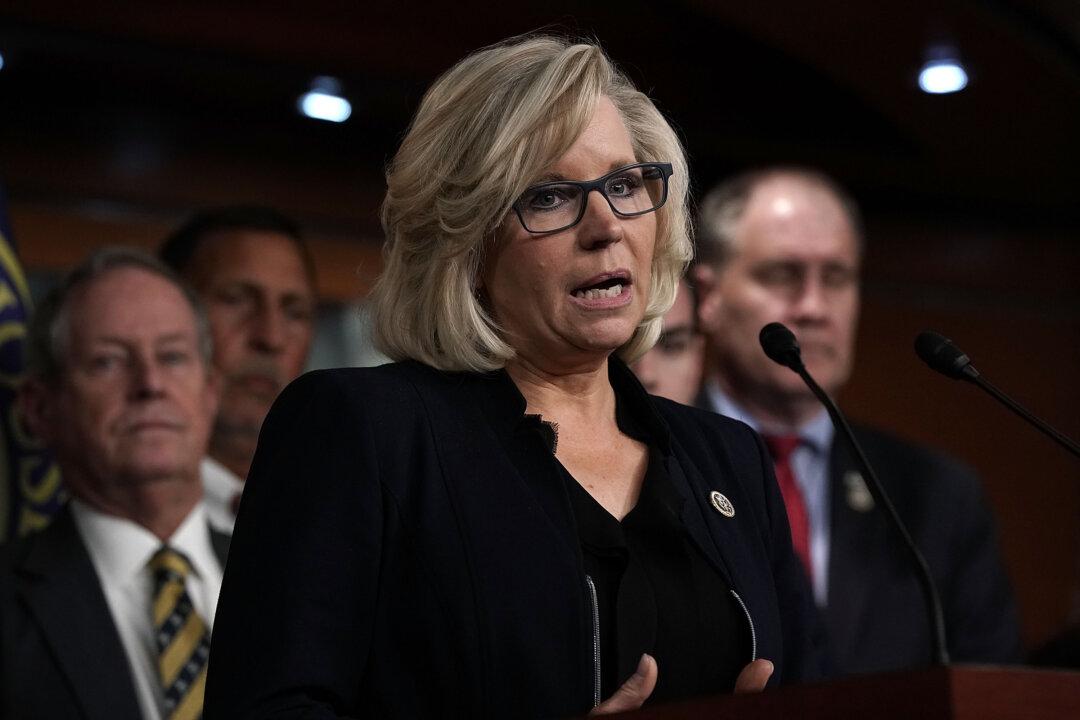Rep. Liz Cheney (R-Wyo.), said Tuesday that the United States won’t return to a functioning economy if hospitals are overrun with patients who have contracted the CCP virus.
Cheney’s comments come as the White House wrestles with how soon local economies throughout the United States should be allowed to resume normal enterprise, or if returning to “normal” would create a collapse of the medical system.





